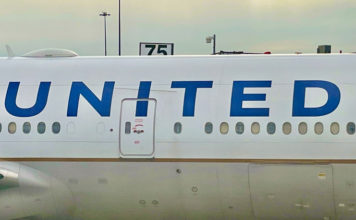
TravelingForMiles.com may receive commission from card issuers. Some or all of the card offers that appear on TravelingForMiles.com are from advertisers and may impact how and where card products appear on the site. TravelingForMiles.com does not include all card companies or all available card offers.
A post on one of the larger Miles & Points blogs caused a bit of ruckus last week when it appeared to suggest (advise?) that existing IHG Rewards members should open up second accounts to take advantage of a generous promotion open only to new members.
I should point out a couple of things: (1) It appears that this post has now been taken down and (2) it wasn’t actually written by the blog owner, rather it was written by a contributor.
So what was all the fuss about?
To get to the crux of the matter let’s take a look at the promotion in question:
IHG Rewards is currently running a promotion that they’re calling “Accelerate” (which I explained here) and the requirements/benefits of the promotion vary from person to person with the most lucrative promotion on offer to those who are new to IHG Rewards. Existing IHG Rewards members, like me, have been given more stringent promotion requirements with a lot less to gain at the end…but that’s just the way it goes.
In a nutshell, if you’re new to IHG Rewards, you can potentially earn yourself two free nights at any IHG property in the world for quite a small outlay. And that’s a very good promotion to have – Joanna and I made the most of a similar promotion earlier on in the year.
The offending post suggested that existing IHG members, like Joanna and I, could make the most of this lucrative promotion for a second time by opening up a new IHG accounts and pretending to be “new” members. This is very clearly against the rules of the promotion and against the rules of the IHG Rewards loyalty scheme.
The ensuing outcry was mainly centred around the fact that this was (a) considered unethical and (b) considered a fraudulent act against IHG Rewards – but neither of those is why I’m writing this post.
The bigger issue
The post in question was written very clearly and it would take someone of an extremely limited intellect not to realise that what was being suggested was both potentially unethical and potentially fraudulent. But I’m not taking issue with either of those things.
I’m not about to act as the ethics police or pass judgement on the morality of doing what was suggested – every person who read the offending post could easily make up their own mind and decide for themselves if what was being suggested was right or wrong. All the information to make such decision was available in the post.
What annoyed me was the fact that some very pertinent information was missing from the post.
Points & Miles blogs are read by people with vastly different levels of interest in the hobby and with vastly different levels of experience – and I strongly believe that blog posts shouldn’t assume prior knowledge if that knowledge could significantly change the opinion of a reader.
In this case what wasn’t mentioned in the blog was the fact that IHG is remarkably good when it comes to account audits and, if you’re caught attempting to do what was suggested in the post, there’s an excellent chance that both of your accounts will get shut down with the loss of all points and with the loss of any status you have with IHG. There is almost no right of appeal and claiming that you got the idea from a blog won’t get you very far.
I can easily envisage a scenario whereby a person with limited knowledge of the IHG system, but with a significant IHG Rewards points balance (e.g. someone whose work pays for them to stay at IHG Hotels), could have read the blog post in question and not realized just what they would be risking if they followed the suggestion/advice given.
I’m pretty sure such a person would reconsider opening up a second IHG Rewards account if they knew that they would gain two free nights if they got away with the ruse but stood to lose all their points (potentially a lot more than two night’s worth) if/when they got caught.
 The InterContinental Amstel In Amsterdam – A great IHG hotel but not worth losing your account for.
The InterContinental Amstel In Amsterdam – A great IHG hotel but not worth losing your account for.
Ethics aside, there is absolutely no way a post like this should have been written without clearly informing readers of the risk they would be running if they acted on the suggestion being given.
Don’t get me wrong, I’m actually a fan of the blog in question and I’d like to believe that this post only got published because the blog owner was somewhere in the air (which I believe he was). But the contributor should have known better. If you’re going to write stuff like this you have a duty of care to the readers not to lead them down a path they could easily come to regret.
How to avoid future pitfalls
If you’ve been reading this and thinking to yourself that you could have easily made the mistake of going down the road that was suggested, don’t worry, there’s usually a sure-fire way of doing your due diligence – read the comments under the blog post.
If you ever come across a blog post that appears to be advocating something that’s clearly close to (if not over) the line, make sure you read all the comments that follow the post. In this case, while a lot of commenters focused on the ethics of the suggestion begin made, a good number of commenters pointed out just how good IHG have been with their account audits of late. Anyone reading the comments would have been well warned of what could happen to their accounts if they attempted to deceive IHG and then got caught. Kudos to those commenters for speaking up.
Moral of the story: The comments section of blogs aren’t just for the internet trolls – they can be full of information as good as if not better than the blog post they’re commenting on. Make sure you read them.
Featured image: Gregory Taylor via Flickr









![The ideal 4 card American Express Membership Rewards team [Updated] a glass door with a picture of a man](https://travelingformiles.com/wp-content/uploads/2021/06/Amex-Centurion-Lounge-SFO-featured-741-356x220.jpg)







